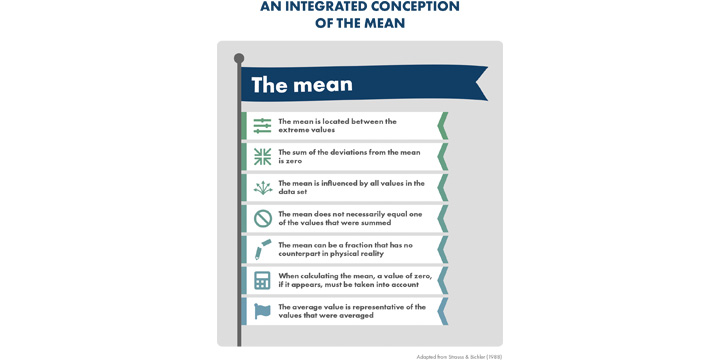01 November 2019

What does research suggest is important for students when developing concepts of the mean?
- Allowing students to develop early, informal experiences of the mean may help them develop better conceptual understanding and reasoning skills rather than learning the procedure by rote first
- The mean is complex and should not be oversimplified or taught formally too early; it may be less intuitive to students than the median or mode
- It is important that the mean be considered alongside other measures like shape and spread and placed within the bigger picture of a statistical toolkit rather than overemphasised
- There are multiple models to aid in conceptual understanding of the mean such as a balance point, fair share and ratio model, which students should have the opportunity to consider; it may be useful to start with the fair share model as the simplest
- Zero values and the context of the data are important to consider alongside calculation of the mean
- The mean is an example of an abstract mathematical construction and time is required for students to explore it deeply
- Students should have the opportunity to discover that the mean is useful in comparing groups of unequal size when appropriate but that it is not always a typical value
View EspressoView in Norwegian